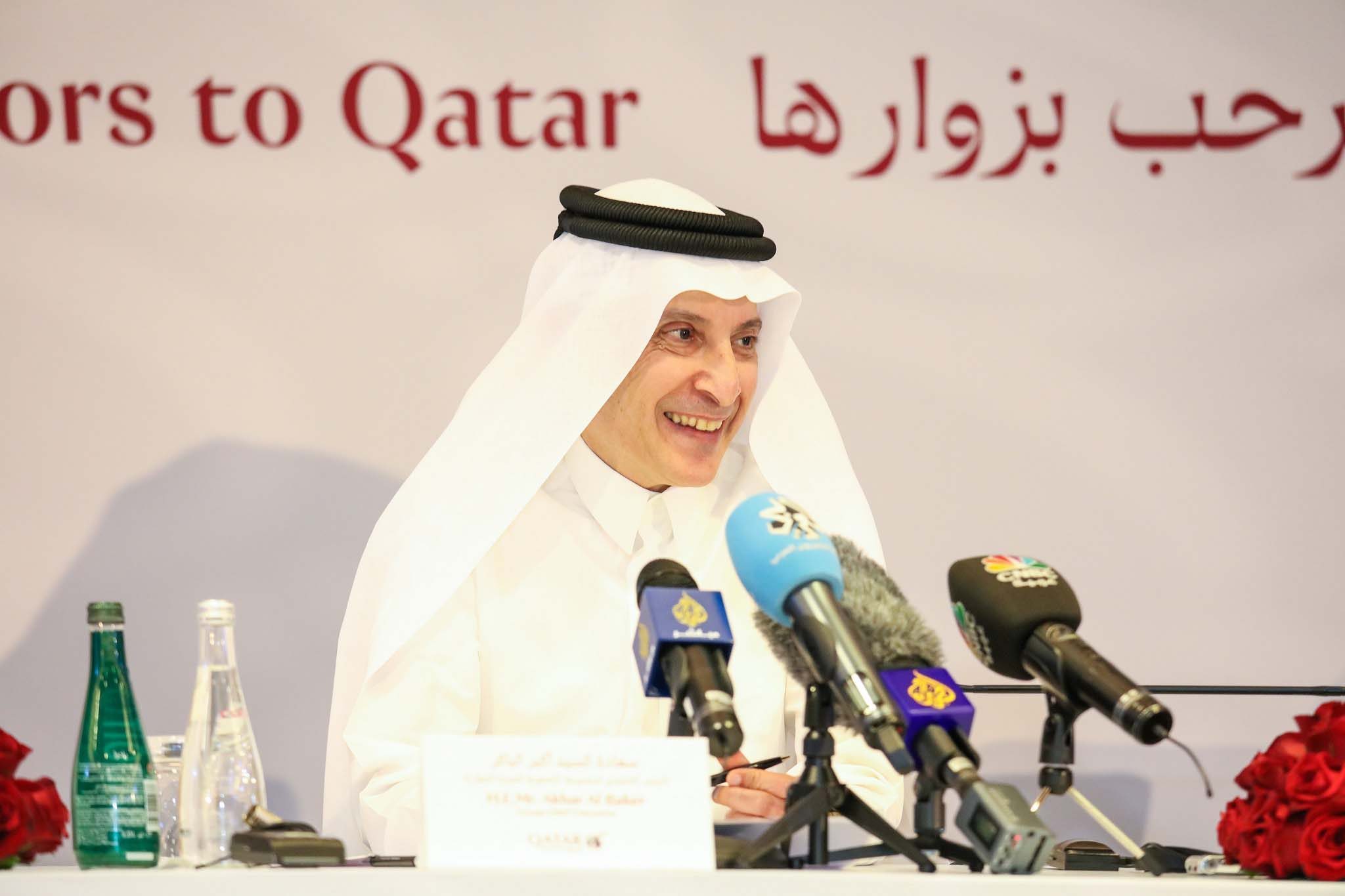In March, Airbus revived a 73-aircraft order with Qatar Airways that had been cancelled.
Qatar Airways could increase the number of its destinations from the current standing of 177 to 190, but doing so depends on the delivery of additional aircraft, the airline’s CEO said.
“It all depends when we receive further aircraft deliveries. It might turn out to be 190 (destinations),” Akbar Al Baker said during a press conference at the Arabian Travel Market conference in Dubai, as quoted by Reuters.
The airline anticipates that deliveries from Airbus and Boeing will start soon. Al Baker previously claimed the airline’s cautious growth plans were a result of delivery delays.
In March, Airbus revived a 73-aircraft order with Qatar Airways that had been cancelled amid a protracted court battle over damage to the surface of A350s that were grounded by the Gulf carrier.
Al Baker anticipates starting to receive the aircraft in the “not too distant future” after the airline and planemaker resolved their disagreement in February.
Qatar Airways is also experiencing a delay in receiving its Boeing 787 and 777X aircraft, Al Baker disclosed. He said that “unnecessary” worries voiced by the American Federal Aviation Administration (FAA) were to blame for the delayed 787 flights.
In response to concerns raised by the FAA, Boeing temporarily stopped delivering new 787 airplanes in February in order to undertake additional investigation of a fuselage component.
Saudi competition
Separately, Al Baker expressed his excitement for working with Saudi Arabia’s recently unveiled national airline, Riyadh Air, which intends to go head-to-head with other regional airlines like Qatar Airways.
The airline giant CEO said the company will work with and support Riyadh Air because there is enough business for everyone. He also wished the new airline, which was formally announced last month, good luck.
“There is a lot of business around for everybody […] We will cooperate with them and support them,” Al Baker said, without sharing further information.
He did say, however, that there is no “cut-and-paste” means of creating a successful airline.
Al Baker claimed that when he took over as CEO of the Doha-based airline in 1997, his plan was to expand it to 35 aircraft and 35 destinations, but the company was first looked down upon due to the presence of two other sizable airlines in the area, Gulf Air and Emirates.
Currently, the company operates 260 aircraft serving 177 locations.
“You can always go after people and take good people from airlines, recruit them, and expect you will mimic what was at that airline – that doesn’t happen. It only happens by leadership, determination, vision, and of course support,” he said.
“You can get support if you don’t have a vision. You may have a vision, but you don’t have a strategy of how to get to it, all this is very important in a business. You cannot cut and paste somebody else’s strategy into yours.”
Al Baker also maintained that the airline was “fighting with oil companies” to increase the manufacturing of sustainable aviation fuel (SAF) and lower the cost to a marketable level.
The airline plans to either utilise the fuel exclusively or in conjunction with conventional fuel, which has the potential to lessen its carbon footprint.







